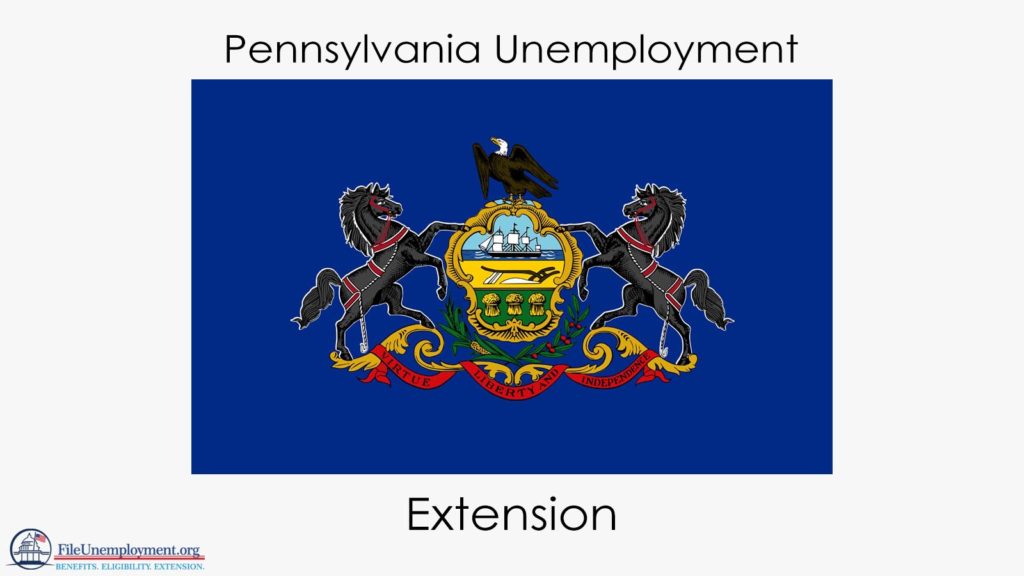The Unemployment Compensation program in Pennsylvania provides weekly unemployment benefits for claimants who have lost their job through no fault of their own. In some circumstances, these benefits can be extended beyond the standard duration.
PA Unemployment Extension Guide
Each week, eligible individuals must look for work to continue being eligible for benefits. But what happens if, despite their best effort, they still need those weekly UC benefits? That’s where extended unemployment benefits can come into play. The PA unemployment extension is meant to help give claimants extra time to find a job, while simultaneously providing lost wages assistance.
PA Unemployment (standard benefit up to 26 weeks)
Individuals who have lost their job through no fault of their own can receive up to 26 weeks of unemployment compensation benefits. You can also claim benefits if you’ve had your working hours reduced and are financially eligible. The amount of benefit payments you receive will be about 50% of your average weekly wage, up to a maximum of $572.
Between December 26th, 2020 and March 13, 2021, those receiving UC could also collect an additional $300 of Federal Pandemic Unemployment Compensation (FPUC).
Use our PA unemployment calculator to estimate your weekly benefits in Pennsylvania.
PA Unemployment Extension
Pandemic Emergency Unemployment Compensation (PEUC)
What if 26 weeks went by and the individual collecting benefits still did not find a new job or have their old hours reinstated? During the pandemic, Pandemic Emergency Unemployment Compensation (PEUC) was put in place. Between December 26, 2020 and March 13, 2021, recipients of PA unemployment compensation could get an additional 24 weeks of benefit payments and FPUC on top of that.
The benefit payment was based on the unemployment claim amount paid out during the 26 weeks of PA unemployment, and the FPUC temporarily provided an additional $300 each week.
Pennsylvania Extended Benefits (EB)
What happens if after the combined 50 weeks of PAUC (standard unemployment) and PEUC ran their course, you still couldn’t find work? That’s when Pennsylvania Extended Benefits (EB) could kick in, providing an additional few weeks of relief. The EB program is available in Pennsylvania during times of very high unemployment, such as during the pandemic.
The number of weeks would be 50% of the total time you collected regular unemployment compensation. For example, if you collected the full 26 weeks of PA UC, you’d be eligible to collect 13 weeks of EB. The amount of your benefit payment would be the same as your regular unemployment claim. And once again, as long as you collected these payments, you’d also get Federal Pandemic Unemployment Compensation for an additional $300 weekly.
Note: PA Extended Benefits ended on September 4, 2021.
Pandemic Unemployment Assistance (PUA)
Pandemic Unemployment Assistance was a special type of Unemployment Compensation geared mainly toward gig workers, independent contractors, and those with insufficient work history to collect regular unemployment compensation.
If you became unemployed, partially employed, or unable to work because of 11 COVID-related reasons specified by the CARES Act, you could collect up to 39 weeks of benefits after January 27, 2020. The exact benefit amount you received was based on your 2019 earnings—a tax return, W2, or 1099 are a few documents that would provide such information. Those receiving PUA could also collect FPUC between December 26th, 2020 and March 13, 2021.
Unlike extensions for regular unemployment benefits which are an evergreen opportunity, PUA claimants could not get an extension to their PUA benefit payments once the federal program ended. However, individuals who are still unemployed could check their Pennsylvania unemployment eligibility and get regular UC (that is, what Pennsylvania calls UI benefits).
It’s important to note that you could not collect multiple state-level benefit claim types at once. For example, if you filed for regular unemployment, you’d have to go through all 26 weeks of that before collecting PEUC, and then you’d have to exhaust all 24 weeks of those benefits before collecting EB. Alternatively, if you were collecting PUA, you’d have to exhaust all 39 weeks of that before filing for extended benefits. However, no matter what type of claim you were filing, you would indeed still collect an additional $300 from the Federal Government.
Regarding eligibility for collecting PUA, the CARES act spelled out a number of qualifying reasons:
- You got sick with COVID and couldn’t work
- A member of your household got sick and you had to quarantine
- A member of your household got sick and you had to take of them
- Your child’s school was closed due to COVID and you didn’t have alternative childcare arrangements
- Your workplace was closed due to quarantines
- A member of your household died from COVID
- You experienced a downturn in work or reduced hours
- You were fired from a workplace that was not COVID compliant
If any of these concerns applied to you, you could file for PUA. Otherwise, if the nature of your unemployment was due to a more normative firing (through no gross negligence or willful misconduct of your own), you’d take the path of collecting standard unemployment compensation.
As you can see, many of these additional weeks were associated with the COVID pandemic (although not the general extension of EB). Though the pandemic seems to be over, a great amount of economic security remains in question. Similar to the CARES act, the American Rescue Plan Act is intended to build on CARES, partially by providing some of the extensions outlined above.
The American Rescue Plan may also have long term repercussions in terms of tax law, housing, education, and other areas. But at the state level, individuals without a job will need to explore the traditional path of regular PA unemployment. Thankfully, the Pennsylvania department that administers unemployment assistance also has a number of UC service center locations where jobless individuals can get help looking for their next source of income.






Comments are closed.